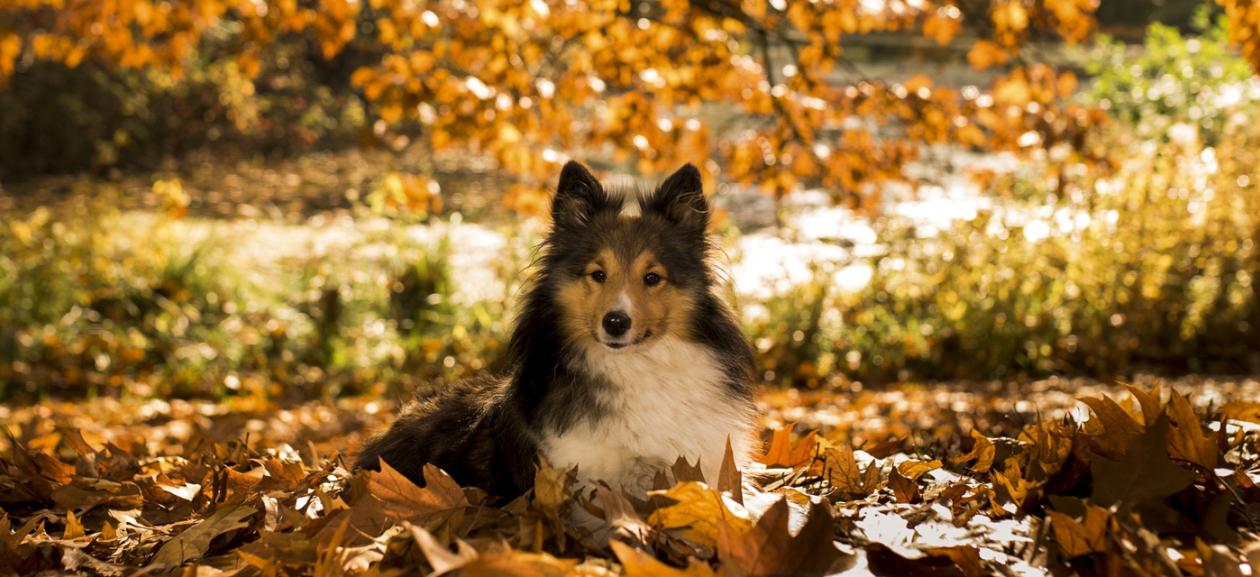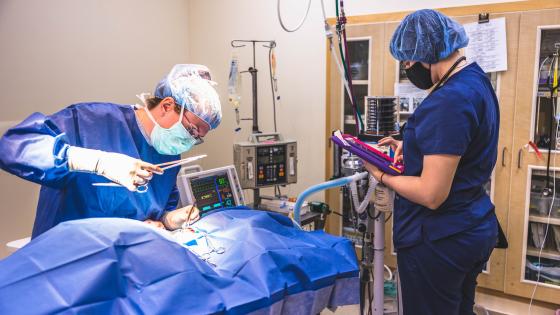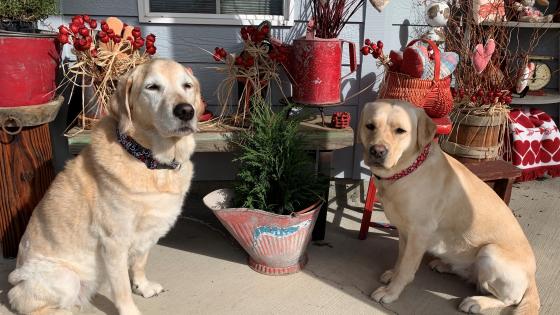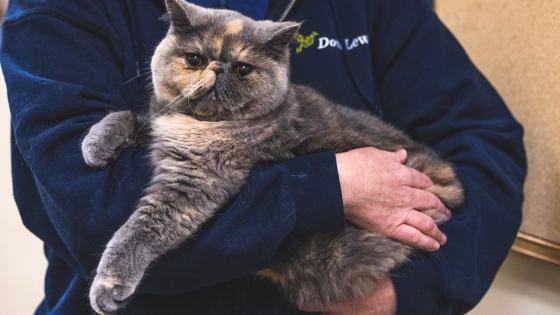
How to Have a Safe Thanksgiving with Your Pets
DoveLewis generally sees an increased number of patients over the Thanksgiving weekend. However, most of the cases caused by the holiday hustle and bustle are completely preventable food-related illnesses or injuries. Doctors urge pet owners to pay close attention to your pets during the festivities.
“Most of the problems pets face during Thanksgiving and the holiday season can be easily prevented if pet owners are informed and paying attention,” said Dr. Ladan Mohammad-Zadeh. “The most common hazard is gastrointestinal upset caused by fatty foods, so avoid sharing what’s on your Thanksgiving dinner plate, secure your garbage cans, and know which foods can pose the most serious problems for pets.”
DoveLewis doctors have seen cases that run the gamut, like the dog who swallowed a turkey leg whole or the cat who ate half a chocolate cake. Sometimes animals can even manage to eat food prep materials or containers, like the dog who ate raw cookie dough and the rubber baking mat or the cat who swallowed the string from the turkey. Thankfully, each of these patients were treated and recovered fully.
But the hazards don’t stop there. Pets can also get disoriented, upset and stressed from house guests and a change in routine, and that anxiety can result in vomiting and gastrointestinal troubles.
FOLLOW THESE TIPS TO MAKE YOUR THANKSGIVING PET FRIENDLY:
Don’t share human food with pets. It may seem cruel to withhold holiday treats, but feeding pets “people food” often results in problems ranging from mild gastrointestinal upset to severe pancreatitis and even potentially life-threatening obstructions. Not to mention, some foods (like chocolate, grapes and onions) are toxic to animals.
Can’t say no to your furry friend? Add a teaspoon of white turkey meat or broth to your pet’s food to safely share the Thanksgiving celebration with your furry friend.
Keep your pet away from raw or undercooked turkey, or cooked turkey that has been sitting out. It could be infected with salmonella, a bacterial organism that may be present in the turkey’s intestinal tract. The cooking process usually destroys the organisms, making the turkey safe to eat. However, if the cooked meat sits at room temperature for too long, the salmonella organisms can return, multiply and cause contamination.
Do not allow your dog near turkey bones. These bones are hollow and splinter easily into sharp pieces. Splinters can lodge in your pet’s throat or intestine, or it can cause punctures to the intestinal tract and create blockages. They may stay lodged in your pet’s body for days before there are symptoms. Signs of serious problems may include loss of appetite, depression, vomiting or diarrhea. Sometimes the bone will pass by itself. Other times, surgical removal is necessary.
Secure garbage cans at all times, especially when they contain food scraps and bones. Otherwise, your pets may opt for a dumpster dive that could have dangerous consequences.
Create a “safe zone” for pets dealing with house guests. Visiting friends and relatives, even of the canine variety, can upset your pets. Cats may choose to hide; dogs may become fearful or aggressive (especially around other dogs in competition for food). The stress can manifest in a variety of ways, including vomiting and gastrointestinal issues. If your pet seems overwhelmed, find a quiet room or area of the house for them to relax until the new sounds, smells and activity of the holiday celebration are over.
Check your pet’s registration and ID tags and update their microchip. With house guests coming and going, it’s common for unsupervised pets to get loose. Updating your pet’s microchip is the best way to ensure your lost pet will be returned. You may also post lost pet information on the DoveLewis online Lost and Found Pet Database.



